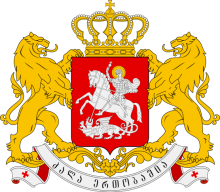Resource information
The scope of this Law shall be protection of the national cultural heritage and regulation of legal relations originating in this sphere. It shall be applicable to the entire cultural heritage present on the national territory. The Ministry of Culture and Protection of the Monuments within its plenary powers shall perform: (a) supervision over protection of cultural heritage and implementation of state policy in this sphere; (b) law-making in the sphere of protection of cultural heritage; (c) identification of the objects of cultural heritage and systematic control of the state thereof; (d) expertise and state registration of the objects of cultural heritage; and (e) setting up, updating and management of public database related to the objects of cultural heritage.
Repeals: Law No. 2209 on the protection of cultural heritage. (1999-06-25)



